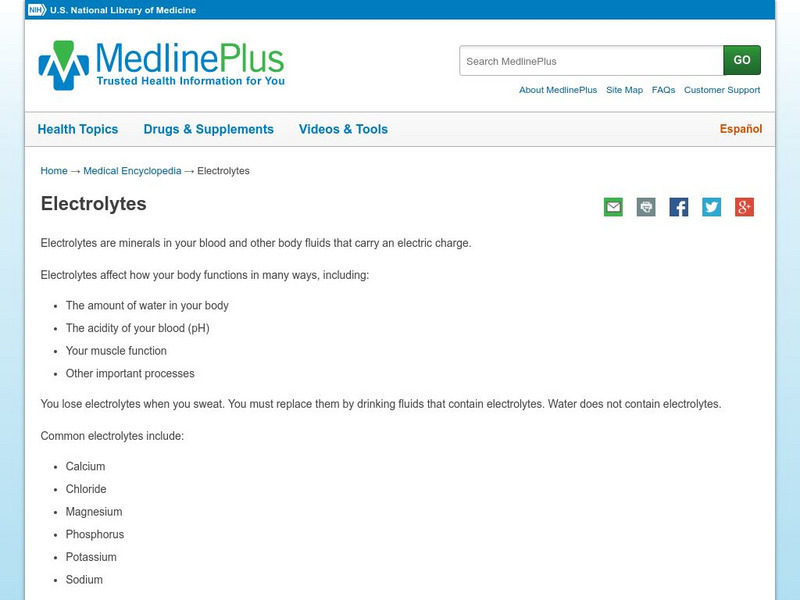OpenStax
Open Stax: Anatomy and Physiology: Functions of the Integumentary System
Learn here all about how the integumentary system functions: such as protecting the body from invasion by microorganisms, chemicals, and other environmental factors; preventing dehydration; acting as a sensory organ; modulating body...
OpenStax
Open Stax: Anatomy & Physiology: Electrolyte Balance
Students will learn about the role of the six most important electrolytes in the body, and then study the disorders associated with abnormally high and low levels of these electrolytes.
WebMD
Medicine Net: Electrolytes
"What are electrolytes?" Find the answer to this question and read information on potassium, chloride, hyperkalemia, and kidney disease.
Curated OER
Kids Health: Electrolytes
What happens when your blood is tested for electrolytes? Find the answer to this question, and learn how electrolytes, like sodium, potassium, and chloride, function in the body and keep you healthy.
Other
Nephrology Channel: Electrolyte Imbalance
In addition to defining "Electrolyte," and providing examples, this website describes hypotremia, "The most common electrolyte imbalance associated with kidney disease."
WebMD
Web Md: Electrolytes and Electrolyte Imbalances
What are electrolytes? What do electrolytes do? Find simple answers to these questions in the two paragraphs provided on this website.
Other
Moms Team: Hydration: Replacing Electrolytes
This is a simple overview of electrolytes and their function when it come to your health. Learn why electrolytes are important, how they are lost during sports and physical activity, how they are replaced by foods, when electrolyte...
US National Library of Medicine
Medline Plus: Electrolytes
This website provides a brief definition of "electrolytes" and a few examples of the types of electrolytes that exist in your blood.









